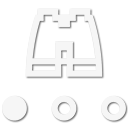
Explorer I
Right there with you on that!I have gotten over the need to prove anything to anybody.

Explorer I
Right there with you on that!I have gotten over the need to prove anything to anybody.
This has wound up being my philosophy. I have used my trail tools on other people's rigs almost as often as on my own.It's not always about fixing your rig, a lot of times its about fixing other's rigs so try to think generically when possible.

Member III
8300
So many cats, so few recipes,There are lots of ways to skin most cats.
That's to staple Indiana Jones' hat back on his headI’m curious about the staple gun.
Hello All,
I currently have a Toyota 4runner TRD Offroad, I have started to overland and was wondeing what is a good starting overland toolkit to have
Thanks
Vinay
That's some of the best scotch I've ever had too! But you need to up your snack game a littleAnd a chainsaw if you travel to heavily wooded areas. Helps with firewood processing (hatchet/axe as well) and can get you past a tree downed in/across the track. Winch and snatch block are helpful for downed tree removal.
Shovel, always carry a shovel for recovery and campfires and toilet pits.
Recovery boards are great as well.
@bgenlvtex - I see that you snuck into our house and snapped that pic on our countertops - time for a security systemupgrade. :) Saw your pic and thought "hey, those are our countertops" :)
This is more for the late model 4runners im guessingGood thing is, 4Runner is reliable and not much breaks unless you start modding it.
This is more for the late model 4runners im guessing

Advocate I
19015
Must just be my friends 4runnerTRD Offroad is only offered on the latest generation
All 4Runners are solid though.
Must just be my friends 4runner

Explorer I
Solid junk? ;)Yeah 4Runners are junk. You should tell him to buy a Chevy
He actually wants a TundraYeah 4Runners are junk. You should tell him to buy a Chevy
